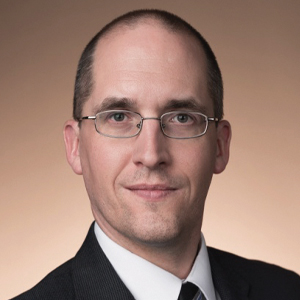
Investing in the next generation
I earned my Ph.D. from the University of Kentucky’s biochemistry department. Each year, the department would send all its second-year graduate students to the annual meeting of the American Society for Biochemistry and Molecular Biology. For me, this occurred in 2005, a year the meeting was held in San Diego.
This was only my second major scientific conference, and I was so excited to learn that Nobel laureates Michael Brown and Joseph Goldstein were opening the meeting with the Herbert Tabor/Journal of Biological Chemistry Lectureship. I was enrolled in a lipids course, and we were learning about cholesterol metabolism by, among other methods, reading seminal papers in which Brown and Goldstein described the molecular mechanisms controlling cholesterol metabolism.
Seeing these two scientific giants speak did not disappoint. As a grad student studying connections between transcriptional regulation and metabolism, I was enthralled to hear them describe how sterol regulatory element binding proteins regulate cholesterol metabolism. This was a motivating factor for me to continue my scientific training and career.
I earned a travel award to the meeting and presented a poster describing some of my early graduate work. I was both scared to death and excited to present. I later felt a sense of validation; scientists from around the world were interested in my research.
The science at the meeting was amazing, and so was San Diego. My classmates and I found plenty of time to enjoy the city. We kayaked in the San Diego Bay and took in a Padres game. We tried to forget about an exam waiting for us back on campus in our proteins and enzymes course. As I recall, our exam scores reflected all the fun we’d had.
Attending that meeting kicked off my relationship with the ASBMB and was a defining moment in my scientific career. It got me hooked on the excitement of sharing scientific discoveries and networking with colleagues at scientific meetings.
More recently, I’ve organized an ASBMB-sponsored career development meeting at my university for trainees. I served on the society’s Education and Professional Development Committee and on the planning committee for the 2020 annual meeting in San Diego. The COVID-19 pandemic caused the cancellation of that meeting, so I served again in 2021 when the society held its first virtual annual meeting.
Over the years, I’ve had a front-row seat watching how the society affects the scientific community, especially trainees and other early-career scientists. Just like the 2005 meeting for me, I believe ASBMB activities have career-defining impacts on countless individuals each year. When the society provides travel awards to the annual meeting, trainees get to present their research to the scientific community — just like I did. I imagine this opportunity jump-starts many scientific careers.
Every time I look back on my time as a grad student, the ASBMB — and especially that meeting — stands out as a pivotal aspect of my training. I love the idea of a department sending an entire class of graduate students to the ASBMB annual meeting. I don’t know how many do so, but if your department doesn’t, it should.
The scientific and personal benefits of sending trainees to the ASBMB meeting are well worth the investment. Think of the stories your trainees will tell years down the road. Better yet, think of the impact they will have both in scientific discoveries and in their own mentoring of yet another new generation of biochemists.
Other Fellow articles
Paul Criag: People in the ASBMB have changed my life
Susanna Greer: Saying yes to a community of communicators
Alex Toker: An unpredictable journey
Ralph A. Bradshaw: The ASBMB and me
Enjoy reading ASBMB Today?
Become a member to receive the print edition four times a year and the digital edition monthly.
Learn moreFeatured jobs
from the ASBMB career center
Get the latest from ASBMB Today
Enter your email address, and we’ll send you a weekly email with recent articles, interviews and more.
Latest in Opinions
Opinions highlights or most popular articles

Women’s health cannot leave rare diseases behind
A physician living with lymphangioleiomyomatosis and a basic scientist explain why patient-driven, trial-ready research is essential to turning momentum into meaningful progress.

Making my spicy brain work for me
Researcher Reid Blanchett reflects on her journey navigating mental health struggles through graduate school. She found a new path in bioinformatics, proving that science can be flexible, forgiving and full of second chances.

The tortoise wins: How slowing down saved my Ph.D.
Graduate student Amy Bounds reflects on how slowing down in the lab not only improved her relationship with work but also made her a more productive scientist.

How pediatric cataracts shaped my scientific journey
Undergraduate student Grace Jones shares how she transformed her childhood cataract diagnosis into a scientific purpose. She explores how biochemistry can bring a clearer vision to others, and how personal history can shape discovery.

Debugging my code and teaching with ChatGPT
AI tools like ChatGPT have changed the way an assistant professor teaches and does research. But, he asserts that real growth still comes from struggle, and educators must help students use AI wisely — as scaffolds, not shortcuts.

AI in the lab: The power of smarter questions
An assistant professor discusses AI's evolution from a buzzword to a trusted research partner. It helps streamline reviews, troubleshoot code, save time and spark ideas, but its success relies on combining AI with expertise and critical thinking.

